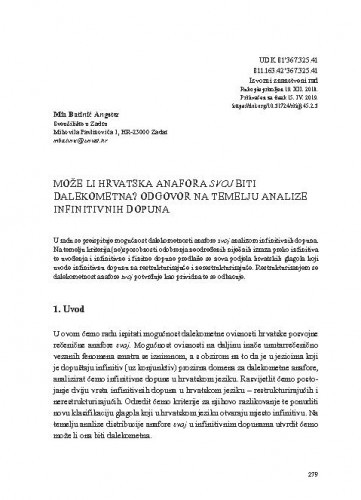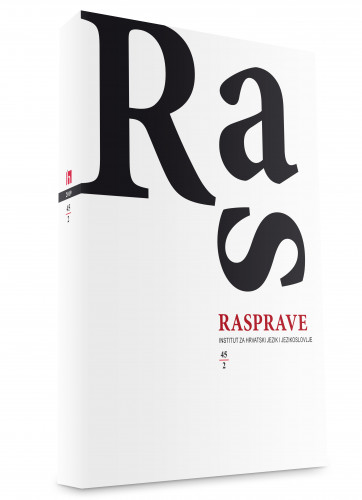U radu se preispituje mogućnost dalekometnosti anafore svoj analizom infinitivnih dopuna. Na temelju kriterija (ne)sposobnosti odobrenja neodređenih niječnih izraza preko infinitiva te uvođenja i infinitivne i finitne dopune predlaže se nova podjela hrvatskih glagola koji uvode infinitivnu dopunu na restrukturirajuće i nerestrukturirajuće. Restrukturiranjem se dalekometnost anafore svoj potvrđuje kao prividna te se odbacuje.; The aim of this paper is to question the locality of the possessive anaphor svoj. In some Slavic languages (possessive) anaphors behave like long-distance anaphors in infinitival clause (cfr. Faltz 1985, Pica 1987, Rappaport 1986, Dotlačil 2005, Reinders- -Machowska 1991). In this paper we tackle the possibility that also Croatian svoj might display long-distance binding in that context. In the analysis we follow the classification of infinitival complements into restructuring and non-restructuring ones: while the former are generated as VP complements, the latter are clause complements (cfr. Rizzi 1976, Wurmbrand 2003, Grano 2015, Landau 2000). On the basis of two criteria – the (im)possibility of licensing negative polarity items and of introducing both infinitival and finite complements – we propose a new classification of Croatian verbs taking infinitival complements which show that svoj cannot be bound outside its governing category.
Sažetak

 Rasprave Instituta za hrvatski jezik i jezikoslovlje 45,2(2019) / glavni urednik Željko Jozić.
Rasprave Instituta za hrvatski jezik i jezikoslovlje 45,2(2019) / glavni urednik Željko Jozić.